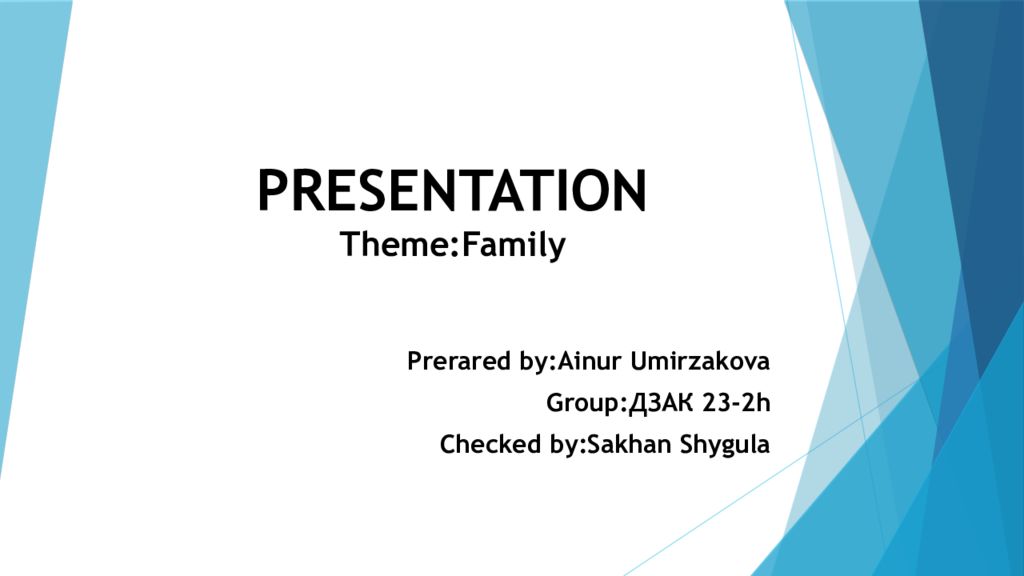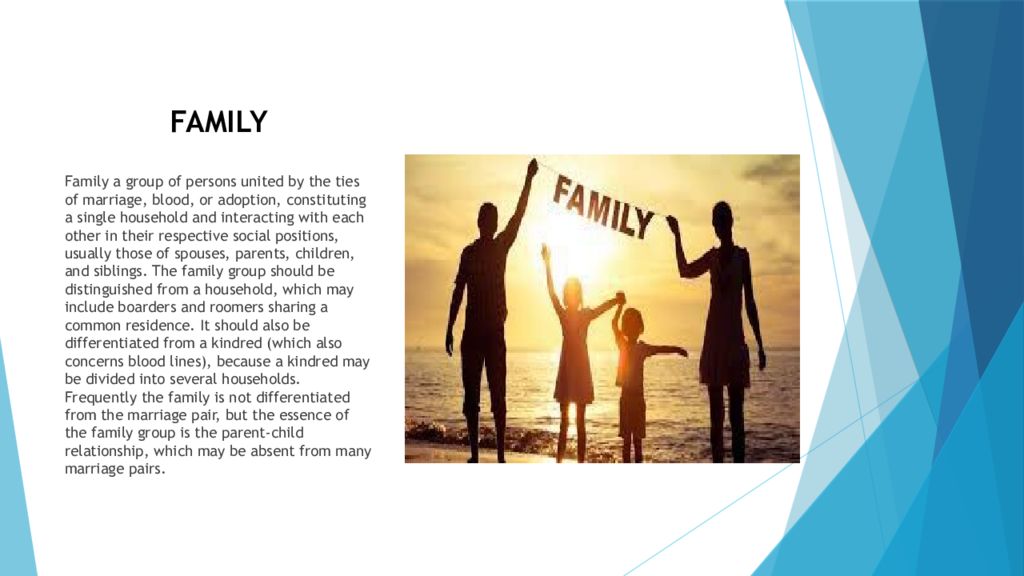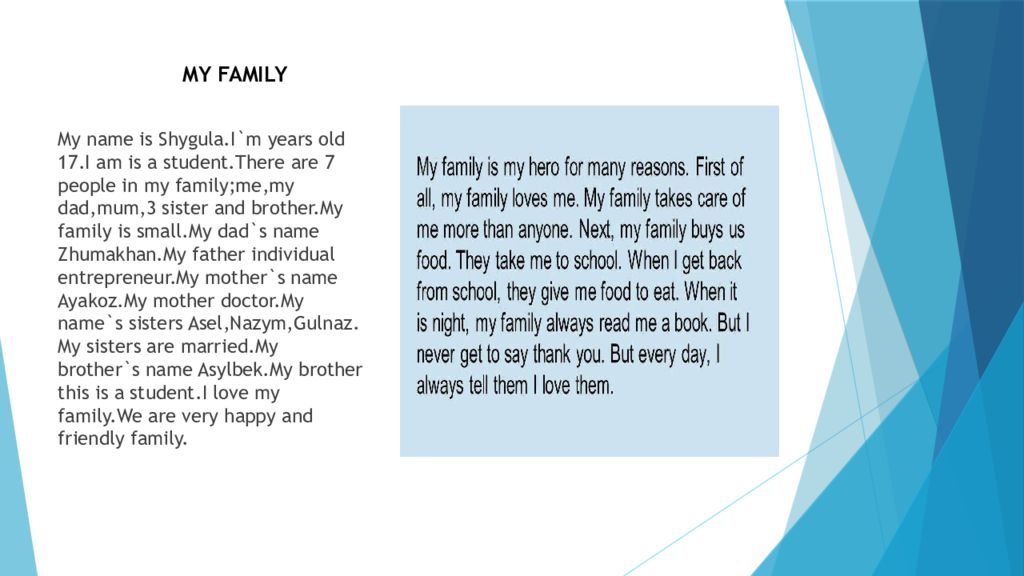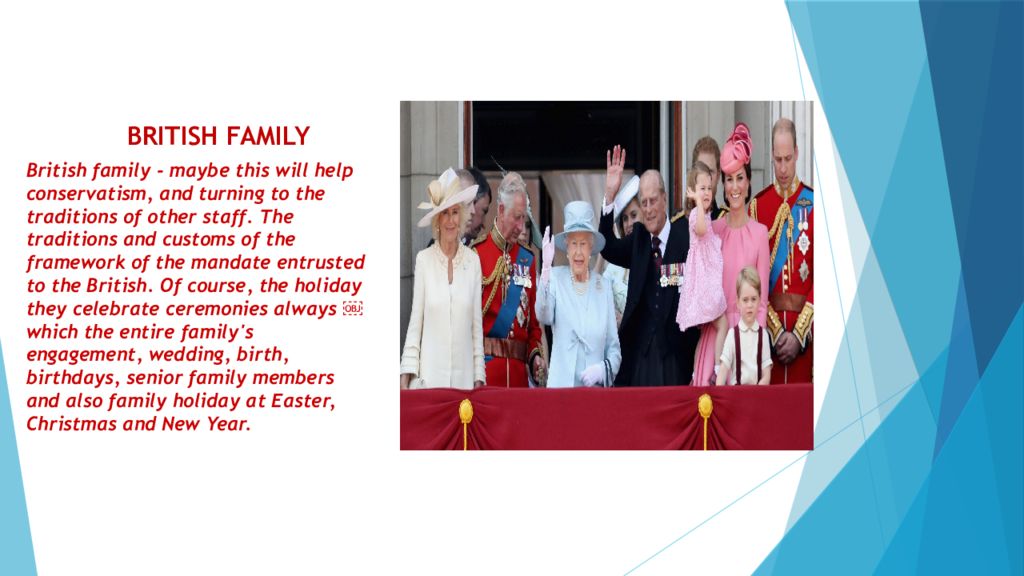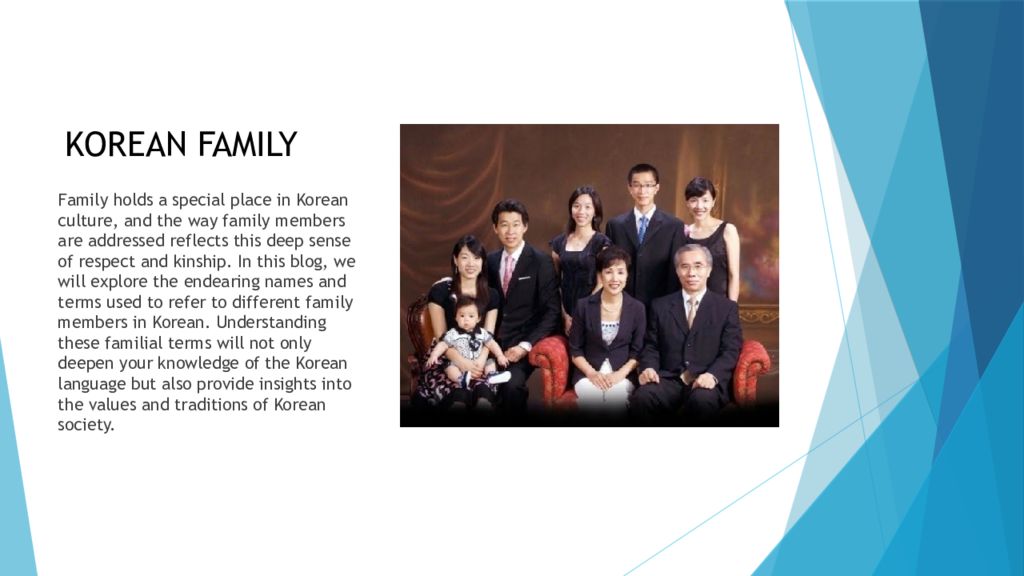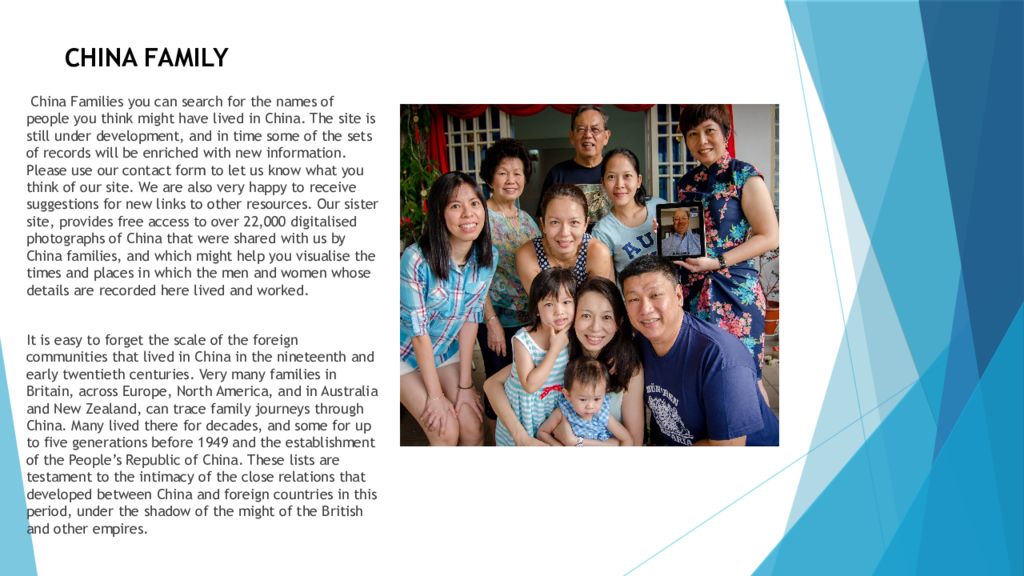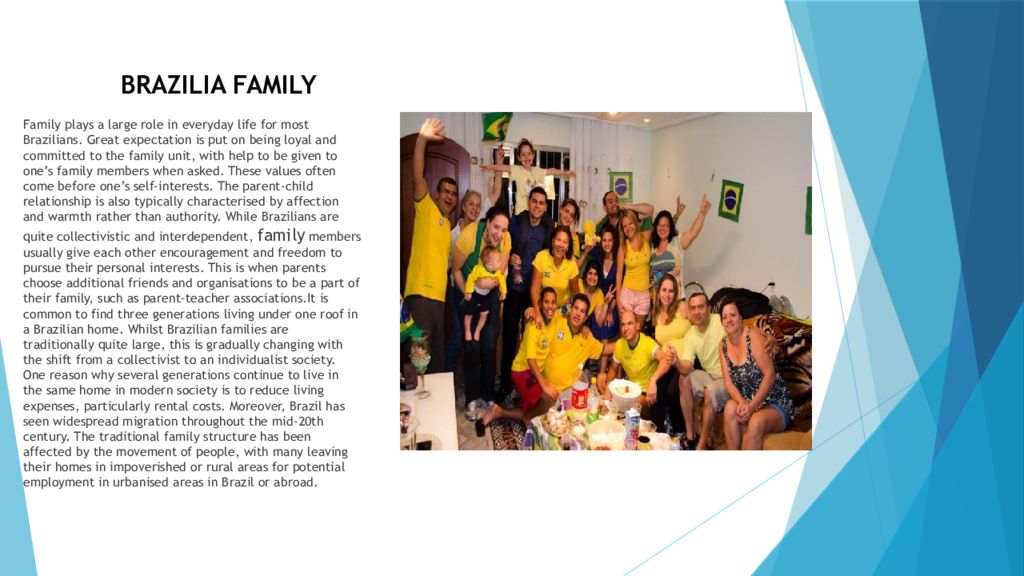Первый слайд презентации: PRESENTATION Theme:Family
Prerared by:Ainur Umirzakova Group: ДЗАК 23-2 h Checked by:Sakhan Shygula
Слайд 2: FAMILY
Family a group of persons united by the ties of marriage, blood, or adoption, constituting a single household and interacting with each other in their respective social positions, usually those of spouses, parents, children, and siblings. The family group should be distinguished from a household, which may include boarders and roomers sharing a common residence. It should also be differentiated from a kindred (which also concerns blood lines), because a kindred may be divided into several households. Frequently the family is not differentiated from the marriage pair, but the essence of the family group is the parent-child relationship, which may be absent from many marriage pairs.
Слайд 3: MY FAMILY
My name is Shygula.I`m years old 17.I am is a student.There are 7 people in my family;me,my dad,mum,3 sister and brother.My family is small.My dad`s name Zhumakhan.My father individual entrepreneur.My mother`s name Ayakoz.My mother doctor.My name`s sisters Asel,Nazym,Gulnaz. My sisters are married.My brother`s name Asylbek.My brother this is a student.I love my family.We are very happy and friendly family.
Слайд 4: BRITISH FAMILY
British family - maybe this will help conservatism, and turning to the traditions of other staff. The traditions and customs of the framework of the mandate entrusted to the British. Of course, the holiday they celebrate ceremonies always which the entire family's engagement, wedding, birth, birthdays, senior family members and also family holiday at Easter, Christmas and New Year.
Слайд 5: KOREAN FAMILY
Family holds a special place in Korean culture, and the way family members are addressed reflects this deep sense of respect and kinship. In this blog, we will explore the endearing names and terms used to refer to different family members in Korean. Understanding these familial terms will not only deepen your knowledge of the Korean language but also provide insights into the values and traditions of Korean society.
Слайд 6: CHINA FAMILY
China Families you can search for the names of people you think might have lived in China. The site is still under development, and in time some of the sets of records will be enriched with new information. Please use our contact form to let us know what you think of our site. We are also very happy to receive suggestions for new links to other resources. Our sister site, provides free access to over 22,000 digitalised photographs of China that were shared with us by China families, and which might help you visualise the times and places in which the men and women whose details are recorded here lived and worked. It is easy to forget the scale of the foreign communities that lived in China in the nineteenth and early twentieth centuries. Very many families in Britain, across Europe, North America, and in Australia and New Zealand, can trace family journeys through China. Many lived there for decades, and some for up to five generations before 1949 and the establishment of the People’s Republic of China. These lists are testament to the intimacy of the close relations that developed between China and foreign countries in this period, under the shadow of the might of the British and other empires.
Последний слайд презентации: PRESENTATION Theme:Family: BRAZILIA FAMILY
Family plays a large role in everyday life for most Brazilians. Great expectation is put on being loyal and committed to the family unit, with help to be given to one’s family members when asked. These values often come before one’s self-interests. The parent-child relationship is also typically characterised by affection and warmth rather than authority. While Brazilians are quite collectivistic and interdependent, family members usually give each other encouragement and freedom to pursue their personal interests. This is when parents choose additional friends and organisations to be a part of their family, such as parent-teacher associations.It is common to find three generations living under one roof in a Brazilian home. Whilst Brazilian families are traditionally quite large, this is gradually changing with the shift from a collectivist to an individualist society. One reason why several generations continue to live in the same home in modern society is to reduce living expenses, particularly rental costs. Moreover, Brazil has seen widespread migration throughout the mid-20th century. The traditional family structure has been affected by the movement of people, with many leaving their homes in impoverished or rural areas for potential employment in urbanised areas in Brazil or abroad.
